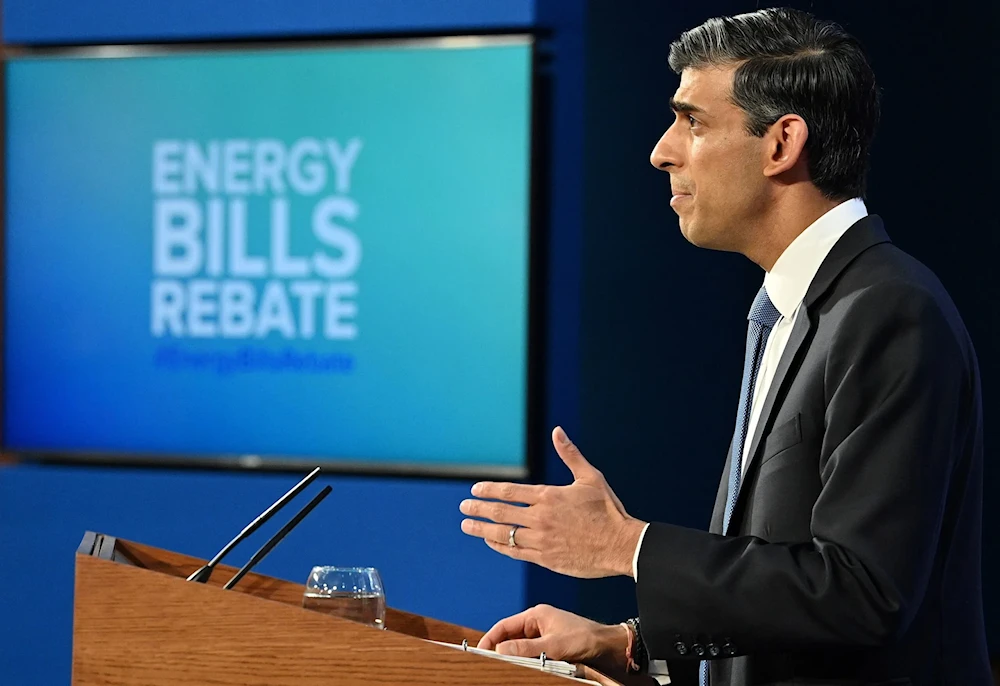British citizens welcome 2024 with 5% hike in energy bills
British energy company Ofgem says the decision was influenced by current geopolitical tensions affecting the oil and gas market.
-

UK Prime Minister then-Chancellor Rishi Sunak announcing measures to curb rising energy prices in May 2022 (AFP)
British citizens will start their new year with a 5% hike in energy bills, British power regulator Ofgem announced on Monday.
The company said the decision was driven by the global geopolitical tensions affecting the oil and gas markets, including the Russian war in Ukraine that is approaching its two-year mark and the recent military escalation in the Red Sea between the US-led maritime coalition and Yemenis, who are carrying out operations targeting Israeli and "Israel"-bound ships in response to the occupation's ongoing genocide in Gaza.
From January 1 to the first of March, households will add 94£ to their annual bill, the firm said.
Read more: Homelessness among UK armed forces veterans rises by 14%
Adjustments to electricity costs are introduced every three months, with a cap on how much suppliers can charge citizens as per consumption set by Ofgem. The change will see cost rising from 1,834£ in 2023 to 1,928£ in 2024.
Ofgem CEO Jonathan Brearley acknowledged that many people are having “a difficult time” and that “any increase in bills will be worrying."
The cap is applied to unit rates and standing charges, meaning that the more energy a household uses, the more they will pay. Additionally, a household's location affects the bill since the cap on electricity prices varies slightly across different regions of the country.
As Christmas approached, Citizens Advice noted an unprecedented number of individuals unable to settle their energy bills. The organization is among those urging the government to provide extra, targeted assistance for those facing hardships.
In December, Ofgem stated that UK households have accumulated debts on electricity and gas supply of around £3 billion ($3.8 billion) with electricity and gas suppliers.
The figures marked an increase of £400 million ($507 million) since mid-October, recording their highest level ever because of a combination of high energy prices and growing cost of living pressures.
“We know that cost of living pressure is hitting people hard and this is evident in the increase in energy debt reaching record levels,” Tim Jarvis, the director general for markets at Ofgem, said. “The record level of debt in the system means we must take action to make sure suppliers can recover their reasonable costs, so the market remains resilient, and suppliers are offering consumers support in managing their debts."
The chief executive of the website TotallyMoney said energy suppliers had been instructed to contact struggling customers and offer support, “but that doesn’t mean you have to wait for them to reach out."
“Get in touch at the earliest convenience and see if they can offer you a temporary debt repayment holiday, or a debt repayment plan to best suit your situation,” said Alastair Douglas.
However, despite the challenging situation, experts are expecting prices to fall starting April.
Analytics firm Cornwall Insight projected a 14% decrease in energy bills in April. This means an average household would have an annual electricity bill of 1,660£.

 3 Min Read
3 Min Read








